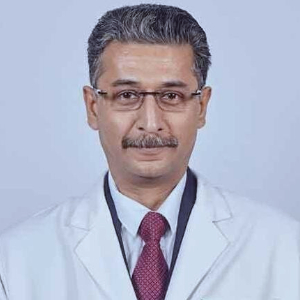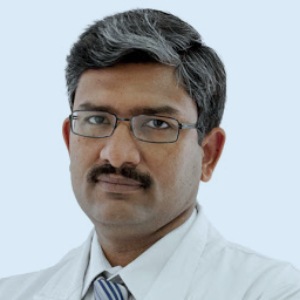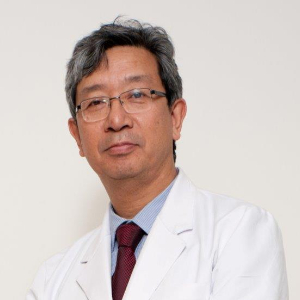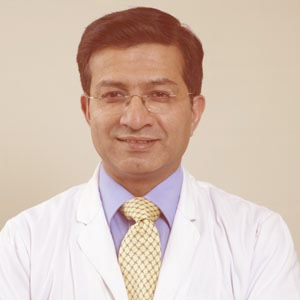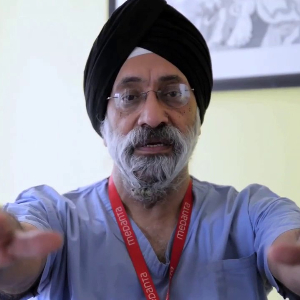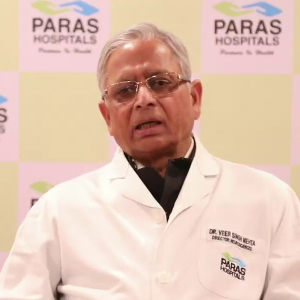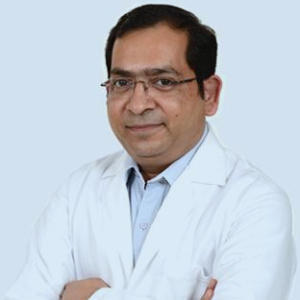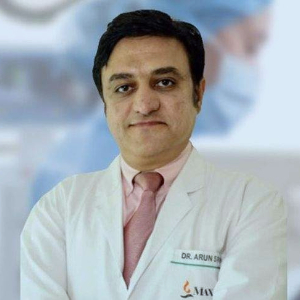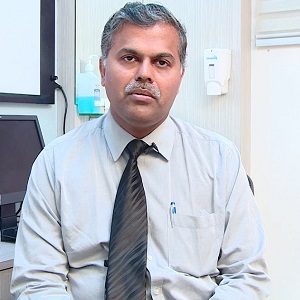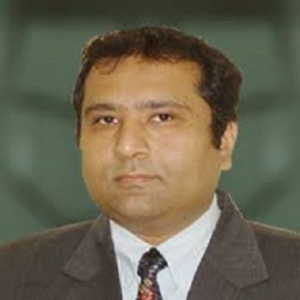Best Doctors in India for Craniotomy Surgery
- Neurosurgeon, Gurugram, India
- Over 22 years’ experience
- Fortis Memorial Research Institute
Profile Highlights:
- Dr. Sandeep Vaishya is a renowned Neurosurgeon in India, with over 22 years of proficient experience in the field of advanced neurosurgery.
- He has closely worked with some of the top-notch institutes and hospitals in India.
- Dr. Vaishya is regarded as one of the top surgeons of Gamma Knife Surgery in South Africa and is also considered a renowned surgeon for brachial plexus injuries.
- Additionally, Dr. Vaishya specializes in minimally invasive and image-guided neurosurgery, intracranial tumor surgery (including skull base tumors), functional neurosurgery, spinal surgery, and brachial plexus & peripheral nerve surgery.
- Top Neurosurgeon | Artemis Hospital | Gurugram, India
- 25+ years experience
- Artemis Hospital, Gurgaon
Profile Highlights:
- Dr. Aditya Gupta is one of the top Neurosurgeons in India functioning as the Chairperson of the Department of Neurosurgery & CNS Radiosurgery and Co-Chief of Cyberknife Centre at the Artemis Hospitals in Gurugram, India.
- He is renowned for pioneering advanced surgical techniques in treating various brain tumors, specializing in microsurgery and radiosurgery. His expertise extends to managing Movement Disorders with Deep Brain Stimulation (DBS), epilepsy surgery, nerve and brachial plexus surgeries, as well as treating brain aneurysms and AVMs. He is also highly skilled in spine surgery, having performed a wide range of procedures.
- Dr. Gupta graduated as a topper from All India Institute of Medical Sciences, New Delhi. He later served as Faculty and Associate Professor of Neurosurgery until 2009.
- Top Neurosurgeon | Fortis Memorial Research Institute | Gurugram, India
- 32+ years’ experience
- Fortis Memorial Research Institute
Profile Highlights:
- Dr. Rana Patir is one of the most experienced and highly qualified Neurosurgeons in India.
- He holds an extensive experience of 32+ years as a neurosurgeon and has performed more than 10,000 neurosurgical procedures till date.
- Dr. Patir is an expert in all kinds of neuro and spine surgeries with a specialization in minimally invasive brain and spine surgery, Epilepsy surgery, pediatric neurosurgery, and neurovascular surgery.
- Top Neurosurgeon | Max Hospital, Saket, New Delhi, India
- 20+ Years Experience
- Max Super Specialty Hospital, Saket, New Delhi
Profile Highlights:
- Dr. Bipin Walia is one of the most famous neurosurgeons who has performed over 7000 successful neurosurgeries so far.
- Dr. Bipin Walia specializes in image-guided surgery, disc replacement, and endoscopic disc surgery, including endoscopic cranial surgery. His expertise also includes brain tumor surgery and a special focus on minimally invasive surgery for spinal tumors.
- He earned his MBBS and MS (General Surgery) degree from Armed Forces Medical College, Pune, followed by which his, M.Ch(Neurosurgery) from All India Institute of Medical Sciences, New Delhi.
- Dr. Bipin Walia has over 20 years of experience with his outstanding performance earning him quite some rewards and recognition.
- Top Neurosurgeon | Medanta_ The Gurugram | India
- 30+ years’ experience
- Medanta-The Medicity, Gurgaon
Profile Highlights:
- Dr. V P Singh is a renowned Neurosurgeon with over 30 years of veteran experience. His competence in cranial, spinal, and peripheral nerves has helped him successfully perform 400+ Intracranial Aneurysm surgical procedures.
- Dr. Singh has also been credited for initiating the Gamma Knife Unit and epilepsy surgery program at All India Institute of Medical Sciences, New Delhi.
- He is proactively involved in the treatment of arteriovenous malformations by radiosurgery techniques and is currently the chairman of the Institute of Neurosciences, Medanta.
- Neurosurgeon, Gurugram, India
- Over 38 years’ experience
- Paras Hospital Gurugram
Profile Highlights:
- Dr. (Prof.) V S Mehta is a leading Neurosurgeon in India and is considered among the best neurosurgeons in the world.
- He holds an experience of over 38 years in the field and is an expert in Brachial Plexus Surgery, Brain Stem Surgery, Brain Tumour
- He has been honored with the Padma Shri for his dedication and contributions to neurosurgery and spine surgery in India.
- In Paras Dr. V S Mehta has been part of the team to first use the Image-Guided Brain Tumor Navigation Technology for Brain tumor surgery in India.
- Top Neurosurgeon & Spine Surgeon | BLK Hospital, New Delhi, India
- 29+ Years Experience
- BLK Super Specialty Hospital, New Delhi
Profile Highlights:
- Dr. Anil Kumar Kansal is a highly respected and accomplished neurosurgeon with over 29 years of extensive experience in the field of neurosurgery, spine surgery, and robotic surgery.
- He currently serves as the Principal Director and Head of the Department at Max Healthcare, where he leads the Neurosciences division with a focus on delivering cutting-edge care to patients with complex neurological conditions.
- He earned his MCh in Neuro Surgery from King George’s Medical College, Lucknow University, in 2001, following an MS in General Surgery from the same prestigious institution in 1997.
- Top Neurosurgeon | Max Hospital, Saket, New Delhi | India
- 20+ Years Experience
- Max Super Specialty Hospital, Saket, New Delhi
Profile Highlights:
- Dr. Arun Saroha is a renowned Neurosurgeon with extensive experience in the surgical treatment of all kinds of brain and spine disorders.
- He holds an experience of over 20 years in the field and has performed over 8000 neurosurgeries till date for different types of neuro and spinal diseases.
- Dr. Saroha is an expert in minimally invasive spine surgery, neuro-onco surgery, trauma surgery and is also among the few neurosurgeons with expertise in Pediatric neurosurgery.
- His interest lies in brain and spine disorders like degenerative spine disorder, brain tumors, disc replacements, pediatric neurosurgery surgery for stroke, brain and spine tumor surgery, brain aneurysms, spinal fusion, and decompression surgery.
- Top Neurosurgeon | Apollo Hospitals Greams Road, Chennai | India
- 25+ years experience
- Apollo Hospitals Greams Road
Profile Highlights:
- Dr. M. Balamurugan is a well-known neurosurgeon in India with 25 years of experience.
- Presently, he practices at Apollo Hospital, Greams Road, Apollo Specialty Cancer Hospital, and Apollo Children’s Hospital, Chennai.
- Owing to his experience, Dr. Balamurugan assists in managing craniosynostosis, epilepsy, extradural hematoma, lumbar disc, lumbar spinal stenosis, metachromatic leukodystrophy, multiple sclerosis, peripheral neuropathy, scoliosis, seizures, trigeminal neuralgia, etc. He has expertise in managing brain tumors as well. Patients can consult him for Pediatric Neurosurgery.
- Neurosurgeon, Gurugram, India
- 20 + years’ experience
- Medanta-The Medicity, Gurgaon
Profile Highlights:
- Dr. Sudhir Dubey is a distinguished neurosurgeon with an illustrious career spanning decades, marked by groundbreaking contributions to the field of neurosurgery.
- As the Chairman of Neurosurgery at Medanta, Gurugram, Dr. Dubey has performed over 10,000 neurosurgical operations, solidifying his reputation as one of the foremost experts in the field.
- Dr. Dubey’s academic journey is as impressive as his clinical achievements. He graduated with top honors from King George’s Medical College, where he was awarded the prestigious Sir Rupkishan Das Gold Medal in his final year of MBBS.
Best Hospitals in India for Craniotomy Surgery
- City: Gurugram, India
Hospital Highlights:
- One of India’s best and largest multi-specialty hospitals, Medanta was built with the aim to bring India to the highest standards of medical care. The hospital has been providing the best medical services to its patients, since its inception, with care, commitment, and compassion.
- Equipped with 1250 beds, the hospital was founded by Dr. Naresh Trehan in the year 2009 with an aim to provide the best medical care at affordable costs. The hospital is spread across 43 acres and includes 45 operation theatres and 350 beds dedicated solely to ICU. The hospital includes over 800 doctors, and more than 22 specialty departments and has a dedicated floor for individual specialty in order to offer the best services under one roof.
- The hospital is considered one of the premier institutes in India for Cardiac Care and includes staffs and members of high caliber. The hospital has 6 distinct centers of excellence.
- City: Gurugram, India
Hospital Highlights:
- Artemis Hospital, established in 2007 in Gurugram, India, is a leading multi-specialty institution known for its excellence in patient care and advanced medical technology, offering comprehensive services across specialties like Cardiology, Oncology, Neurology, Orthopedics etc.
- Renowned for its patient-focused care, Artemis Hospital combines state-of-the-art infrastructure with a team of internationally trained doctors and surgeons, ensuring the highest standards of medical treatment.
- Accredited by JCI and NABH, Artemis Hospital meets global healthcare quality and safety standards, reflecting its commitment to providing compassionate, personalized care.
- The hospital is recognized for utilizing cutting-edge diagnostic and ther*peutic techniques, ensuring patients receive accurate diagnoses and effective treatments tailored to their needs.
- City: Chennai, India
Hospital Highlights:
- The Apollo Proton Cancer Centre in Chennai is the most sought-after private cancer hospital in India. It is an integrated facility that provides cutting-edge, all inclusive cancer treatment to patients all over the globe.
- The hospital is a part of the renowned Apollo Group which has a large network of over 74 hospitals in India and across the globe. Out of the 74 hospitals, 21 of them are cancer centres. However, Apollo Proton Cancer Centre is the only cancer hospital to have JCI accreditation.
- The Centre, which was established on the principles of excellence and expertise, unites a formidable medical staff led by some of the most illustrious figures in cancer treatment.
- The hospital follows the global ASTRO Model Policy. It is the same global policy which is followed by countries like USA, UK, and Europe.
- Apollo Proton Cancer Centre is among the very few hospitals in India to receive patients from First World countries such as USA, Canada, New Zealand, Australia, Singapore, Thailand, etc.
- Apart from that, it is also the first hospital in Chennai to receive patients from several countries like Uzbekistan, Kazakhstan, Turkmenistan, Georgia, Armenia, Azerbaijan, SAARC countries (Bangladesh, Nepal, Sri Lanka, Maldives, Bhutan, Afghanistan, and Pakistan), South Africa, Turkey, Egypt, etc.
- In fact, there is a dedicated team at the Apollo Proton Cancer Centre that serves only international patients. Thus, on a monthly basis, the Centre receives patients from across 32 countries.
- Moreover, there are certain treatments in Apollo Proton Cancer Centre that are not available in any other centre. APCC addresses all types of possible cancers that are usually not covered by any other centre.
- City: New Delhi, India
Hospital Highlights:
- Over the last 33 years, the Fortis Escorts Heart Institute has set new standards in cardiac treatment with groundbreaking research. It is now known around the world as a centre of expertise for Cardiac Bypass Surgery, Interventional Cardiology, Non-invasive Cardiology, Paediatric Cardiology, and Paediatric Cardiac Surgery.
- The hospital has cutting-edge laboratories that perform a wide range of diagnostic tests in Nuclear Medicine, Radiology, Biochemistry, Haematology, Transfusion Medicine, and Microbiology.
- Fortis Escorts Heart Institute boasts a diverse group of bright and experienced doctors who are backed up by a team of highly qualified, experienced, and devoted support professionals as well as cutting-edge equipment such as the recently installed Dual CT Scan.
- Approximately 200 cardiac doctors and 1600 personnel currently collaborate to manage over 14,500 admissions and 7,200 emergency situations each year. The hospital now has a 310-bed infrastructure, as well as five cath labs and a slew of other world-class amenities.
- City: Gurugram, India
Hospital Highlights:
- Fortis Memorial Research Institute (FMRI) is a premier multi-super-specialty, quaternary care hospital, known for its exceptional international faculty, top-tier clinicians, super-sub-specialists, and specialized nurses, all supported by cutting-edge technology.
- It is the flaship hospital of Fortis Healthcare Limited, part of IHH Healthcare Berhad, a leading integrated healthcare services provider in India. As one of the country’s largest healthcare organizations, Fortis operates 28 healthcare facilities with over 4,500 operational beds (including O&M facilities) and more than 400 diagnostic centers (including joint ventures).
- Recognized as one of the top hospitals in India, FMRI serves as a leading referral center and aspires to be the ‘Mecca of Healthcare’ for India and beyond. Its 11-acre campus is a testament to its commitment to providing world-class healthcare.
- Accredited by JCI and NABH, FMRI is dedicated to maintaining the highest standards of healthcare quality and safety, ensuring that every patient receives the best possible care. The hospital’s reputation is further enhanced by its state-of-the-art facilities and innovative medical practices.
- City: New Delhi, India
Hospital Highlights:
- The Indian Spinal Injuries Center (ISIC), provides state-of-the-art facilities for the management of all types of spinal ailments.
- Staffed with internationally trained, acclaimed, and dedicated spine surgeons, the hospital provides cutting-edge medical & surgical technology. The hospital provides comprehensive management of spinal injury, back pain, spinal deformities, tumors, osteoporosis, etc.
- The hospital performs motion-preserving spine surgeries including disc replacement and dynamic fixation, and minimally invasive spine surgeries such as endoscopic disc excision.
- The orthopedic service of the hospital covers all orthopedic ailments including trauma, joint diseases & replacements, oncology, pediatric orthopedics & upper limb ailment.
- City: Faridabad
Hospital Highlights:
In the sprawling city of Faridabad, where healthcare needs are diverse and ever-evolving, one institution has consistently stood out as a beacon of excellence in the field of medicine—Marengo Asia Hospital. Established with a vision to provide world-class healthcare services to the community it serves, Marengo Asia Hospital has emerged as a trusted name synonymous with quality, compassion, and innovation in healthcare.
- City: New Delhi, India
Hospital Highlights:
- Indraprastha Apollo Hospital is a 700-bedded multispecialty hospital in the heart of the capital of India. It is a part of Apollo Hospital group, one of India’s most reputed healthcare chains. Indraprastha Apollo Hospital has been accredited by Joint Commission International, making it the first internationally accredited hospital in the country in 2005.
- There are 52 specialties in the hospital with one of the best cardiology centers in the country. The hospital is also equipped with State of the art infrastructure facilities with the largest Sleep Lab in Asia and the largest number of ICU bed facilities in India.
- The latest and highly advanced technologies that are installed in the hospital include Da Vinci Robotic Surgery System, PET-MR, PET-CT, Cobalt-based HDR, Brain Lab Navigation System, Tilting MRI, Portable CT scanner, 3 Tesla MRI, 128 Slice CT scanner, DSA Lab, Endosonography, Hyperbaric Chamber and Fibro scan.
- City: New Delhi, India
Hospital Highlights:
- One of the well-regarded providers in India committed to the highest standards of clinical excellence and patient care, Max Super Specialty Hospital is a part of Max Healthcare, which is the second-largest healthcare chain in India. Regarded as one of the most well-regarded healthcare providers in the country, Max Super Specialty Hospital is committed to the highest standards of clinical excellence as well as patient care. The hospital is also equipped with the latest technology as well as cutting-edge research. The hospital is known to deliver and ensure the highest level of patient care.
- The hospital has more than 500 beds and offers treatment for over 35 specialties. The hospital also holds the credit of having installed the first Brain Suite in Asia. This is a highly advanced Neurosurgical machine that allows MRI to be taken while surgery is ongoing.
- Other advanced and latest technologies are also installed in the hospital such as the 1.5 Tesla MRI machine, 64 Slice CT Angiography, 4D ECHO, LINAC, and 3.5T MRI machine.
- City: Kolkata, India
Hospital Highlights:
- Founded in 2017, the HCG EKO Cancer Centre is a committed, all-inclusive cancer care facility in Kolkata.
- The hospital was collaboratively established by India’s leading cancer care provider HCG (HealthCare Global Enterprises Ltd.), and EKO Diagnostic Pvt. Ltd., a top diagnostic and imaging chain in Eastern India.
- With 88 beds, the hospital provides a full spectrum of services including diagnosis, prevention, screening, second opinions, treatment, rehabilitation, follow-up, and palliative care.
- Additionally, the hospital contains a day-care chemotherapy ward, Neutropenic ward, medical ICU, pharmacy, blood bank, and an IPD wing.
- At HCG EKO Cancer Centre Kolkata, a large team of cancer experts with experience in medical oncology, surgical oncology, radiation oncology, hemato oncology, BMT, and nuclear medicine collaborate to offer a variety of treatment options under one roof.
- Furthermore, the hospital is also known for employing the most advanced radiation technology such as, the Radixact, a next-generation TomoTherapy equipment that provides greater radiation delivery precision.
CRANIOTOMY
Types of craniotomy
Craniotomies are of various types depending on the name of the technique or the location of the surgery:
- Stereotactic craniotomy- This type of craniotomy involves the use of an MRI or a CT scan. Your doctor will use imaging tests for creating 3-D images of your brain that will allow them to differentiate between healthy tissue and normal tissue. The technique helps to figure out the best spot for an incision on the scalp and easily make smaller cuts for performing minimally invasive procedures.
- Endoscopic craniotomy- Your doctor will make a small cut into your skull and insert an endoscope (small lighted device) with a camera.
- Keyhole craniotomy- Meant for removing brain tumors, it is a minimally invasive procedure. It has a shorter recovery time and causes less scarring. Your doctor will make a small incision behind the ear for removing the brain tumor.
- Awake craniotomy- You will stay awake during this surgery as your doctor asks you some questions for monitoring the activity of your brain. He or she will observe which parts of your brain are involved in vision, speech, and movement to about them at the time of the surgery.
- Supra-orbital eyebrow craniotomy- This procedure helps to remove brain tumors present in your front brain by allowing your surgeon to make a small incision in your eyebrows. It causes minimal scars as it is a minimally invasive approach.
- Frontotemporal or Pteronial craniotomy- The frontal, temporal, parietal, and the sphenoid bones meet at the pterion in the skull. The pterion is located near your temple on the side of the skull. The procedure involves the removal of a part of the pterion by making an incision behind the hairline. This lets the surgeon gain access to several parts of the brain.
- Orbitozygomatic Craniotomy- It finds its use in treating aneurysms and difficult tumors. Your surgeon will make a small cut behind your hairline and remove a part of the bone temporarily. This creates a curve of your orbit, cheek, or eye socket. Your surgeon will be able to reach deeper areas of your brain and there will be minimal risk of brain damage.
- Posterior fossa craniotomy- If a tumor is present in the posterior fossa of the skull, it may put pressure on the spinal cord, cerebellum, and brainstem. The procedure helps to remove this tumor while alleviating the pressure. Your surgeon will do this by making an incision at your skull base.
- Translabyrinthine craniotomy- It involves an incision behind your ear for removing a part of your mastoid bone & the semicircular canals that help to balance. Your doctor can also remove an acoustic neuroma with this procedure. There is a lower risk of facial nerve damage with this surgery.
- Bifrontal craniotomy- It helps to remove hard tumors present at the front of your brain and when the tumor removal is complex through minimally invasive surgery. Your doctor will make an incision behind the front hairline for removing a piece of bone forming the curve of the forehead. This helps your doctor to gain access to the front of your brain.
Reasons for the procedure
Your doctor will perform the procedure for treating:
- Infection
- Blood clot
- Tear in the dura mater
- Intracranial pressure
- Tumor
- Cerebral edema or swelling
- Brain abscess
- Arteriovenous malformation
- Epilepsy
- Aneurysm
- Bleeding from the skull
- Skull fracture
- Arteriovenous fistula
What to expect?
Before the procedure
Your neurosurgeon may call you for multiple appointments before the surgery and use various tests for confirming if you can undergo the procedure without any risks. These tests may be a physical examination, blood tests, neurological examination, and CT scan or MRI scan. Your surgeon will also be able to determine the site of surgery according to the type of Craniotomy and your medical condition. You will have to start fasting a night before your surgery and wash your hair with an antiseptic shampoo.
During the procedure
The team of doctors will ask you to remove all the jewelry and accessories that you might be wearing and change your clothing with a hospital gown. You will be asked to lie down on the operating table as a device holds your head in place. The staff will insert an IV line into your arms, a urinary catheter into your urinary bladder, and administer general anesthesia to you. When you fall asleep due to anesthesia, your surgeon will shave your hair present at the surgical site and also clean the area for minimal risk of infection.
Your surgeon will cut your scalp while using a drill & saw to remove the bone flap. He or she will incise the dura mater to gain access into your brain and perform the procedure while removing tissue samples, wherever needed. The team of surgeons will stitch the tissues together and replace the bone flap with wires, plates, or stitches. Next, they will apply a sterile bandage after stitching.
Results
The nurses will take you to the recovery unit and monitor your vitals. If they are stable, they will shift you to your hospital room and ask you to stay there for a week. You might need to elevate your head for managing the swelling and will get oxygen for a few days. You will have to perform deep breathing exercises for treating pneumonia and need commission devices on your legs for preventing blood clots. You will wear the catheter for a few days and the team of doctors will check you regularly for the proper functioning of your brain. You may need to take medications and take rest for at least 6 weeks. Additionally, you might need physiotherapy and speech therapy for regaining the normal functions of walking, talking, and strength.
Risks
Certain factors are contributing to the risks associated with the Craniotomy procedure including your medical condition. The most common risks of Craniotomy procedure may be:
- Head scarring
- Facial nerve damage
- Seizures
- Muscle weakness
- Dent where the bone flap was removed
- Damage to the sinuses
- Brain swelling
- Stroke
- Injury due to the head device
- Infection of the skin or bone flap
- The leaking of the CSF or the cerebrospinal fluid
- Speech and memory problems
- Coma or paralysis
- Balance issues
- Bleeding or blood clots
- Unstable blood pressure
- Pneumonia
- Reaction to anesthesia

